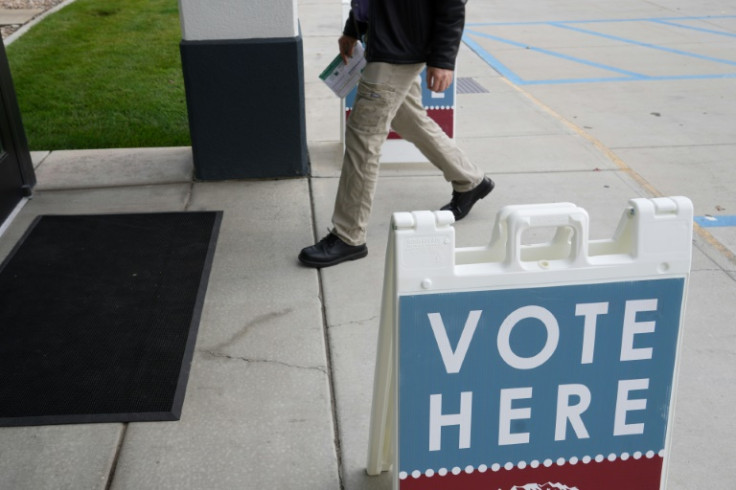UK Cybersecurity Center Warns of 'Deepfakes' Threat to Next Election
The rapid evolution of AI technology has made it increasingly challenging to distinguish between genuine and manipulated content.

In a recent report released by the United Kingdom's Cybersecurity Center, experts have raised alarms about the growing threat posed by "deepfakes" and other artificial intelligence (AI) tools to the integrity of the upcoming election.
The report emphasises the urgent need for enhanced security measures to safeguard the democratic process from potential manipulation as cyberattacks by militant countries are increasing and are becoming more difficult to track.
Deepfakes are AI-generated hyper-realistic videos and audio recordings that can convincingly mimic real people, often with the intent to deceive or spread misinformation.
With the next election on the horizon, concerns have heightened regarding the potential use of deepfakes to manipulate public opinion, sow discord and compromise the authenticity of political discourse.
The Cybersecurity Center's report highlights the rapid evolution of AI technology, making it increasingly challenging to distinguish between genuine and manipulated content.
This poses a significant risk to the democratic process, as voters may be exposed to false narratives and misinformation that could sway their opinions.
Britain's cyberespionage agency's annual review stated that the past year also has seen "the emergence of a new class of cyber adversary in the form of state-aligned actors, who are often sympathetic to Russia's further invasion of Ukraine and are ideologically, rather than financially, motivated".
It further expounded that state-aligned groups present "an enduring and significant threat", from Russian-language terrorists targeting British firms with ransomware attacks to "China state-affiliated cyber actors" utilising their talents to pursue "strategic objectives which threaten the security and stability of U.K. interests".
Britain's MI5 and MI6 intelligence agencies have also recently warned against China's growing technological innovations, labelling the tech superpower "an epoch-defining challenge for UK security."
"We risk China becoming the predominant power in cyberspace if our efforts to raise resilience and develop our capabilities do not keep pace," it said.
With the continuing trend of deepfakes getting harder and harder to distinguish from real videos, abuse of this artificial intelligence is a cause of alarm for the U.K. national election that due to be held by January 2025.
Even though hackers will find it difficult to manipulate votes as Britain still uses the old-fashioned method of voting using pencil and paper, these "hyper-realistic bots" would still make the spread of disinformation during the campaign period easier.
To address these threats, there is a call for increased funding and research to develop advanced tools capable of detecting and mitigating deepfake content as well as the development of public awareness campaigns to educate the public about the existence of deepfakes and how to critically evaluate the information they encounter online.
There is a need to emphasise the need for international cooperation to address the global nature of the deepfake threat, as election interference can extend beyond national borders and to advocate for the establishment of robust legal frameworks that define the consequences for those found guilty of creating or disseminating malicious deepfake content.
Presently, the legal frameworks safeguarding against political disinformation are outdated, fragmented, and, in part, rooted in regulations dating back to the 19th century.
These laws lack provisions to effectively counter the diverse methods through which political disinformation, particularly via AI deepfakes, can undermine democratic processes.
Additionally, they fail to provide adequate protection against false statements pertaining to policy matters or expressions of opinion about an individual's character.
In response to the report, government officials have expressed their commitment to taking decisive action to secure the upcoming election and preserve the integrity of the democratic process.
As technology continues to advance, the battle against deepfakes and AI manipulation remains an ongoing challenge that requires collaboration, innovation and a steadfast commitment to upholding the principles of democracy.
© Copyright IBTimes 2025. All rights reserved.






















